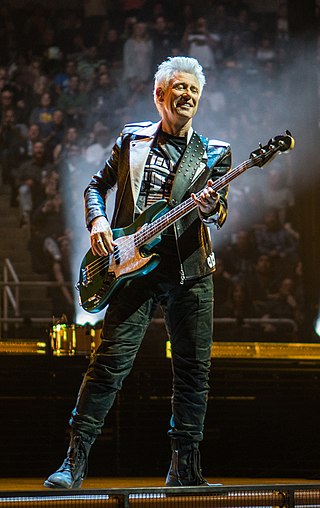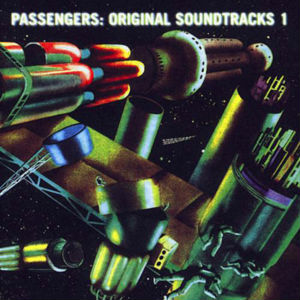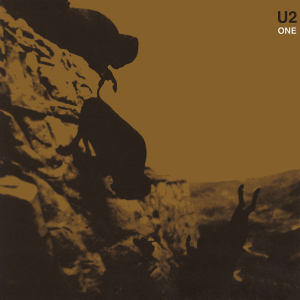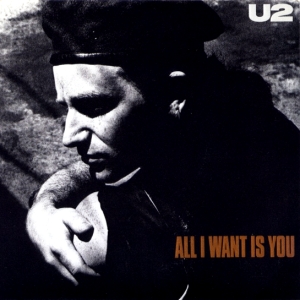Related Research Articles

U2 are an Irish rock band formed in Dublin in 1976. The group comprises Bono, the Edge, Adam Clayton, and Larry Mullen Jr.. Initially rooted in post-punk, U2's musical style has evolved throughout their career, yet has maintained an anthemic quality built on Bono's expressive vocals and the Edge's chiming, effects-based guitar sounds. Bono's lyrics, often embellished with spiritual imagery, focus on personal and sociopolitical themes. Popular for their live performances, the group have staged several elaborate tours over their career.

Adam Charles Clayton is an English-Irish musician who is the bass guitarist of the rock band U2. Born in Oxfordshire, England, he lived in County Dublin, Ireland after his family moved to Malahide in 1965, when he was five years old. Clayton attended Mount Temple Comprehensive School, where he met schoolmates with whom he co-founded U2 in 1976. A member of the band since its inception, he has recorded 15 studio albums with U2.

How to Dismantle an Atomic Bomb is the eleventh studio album by Irish rock band U2. It was released on 22 November 2004 in the United Kingdom by Island Records and a day later in the United States by Interscope Records. It was produced by Steve Lillywhite, with additional production from Chris Thomas, Jacknife Lee, Nellee Hooper, Flood, Daniel Lanois, Brian Eno, and Carl Glanville. Much like their previous album All That You Can't Leave Behind (2000), the record exhibits a more mainstream rock sound after the band experimented with alternative rock and dance music in the 1990s.

Original Soundtracks 1 is a studio album recorded by rock band U2 and Brian Eno under the pseudonym Passengers as a side project. Released on 6 November 1995, the album is a collection of songs written for mostly imaginary films. Owing to Eno's involvement as a full songwriting partner and the album's experimental nature, the moniker "Passengers" was chosen to distinguish it from U2's conventional albums. It was commercially unnoticed by the band's standards and received generally mixed reviews. Guest musicians on the record included Italian opera singer Luciano Pavarotti and producer Howie B, who would co-produce U2's following album, Pop (1997).

"One" is a song by Irish rock band U2. It is the third track from their seventh album, Achtung Baby (1991), and it was released as the record's third single on 24 February 1992. During the album's recording sessions at Hansa Studios in Berlin, conflict arose between the band members over the direction of U2's sound and the quality of their material. Tensions almost prompted the band to break up until they achieved a breakthrough with the improvisation of "One"; the song was written after the band members were inspired by a chord progression that guitarist the Edge was playing in the studio. The lyrics, written by lead singer Bono, were inspired by the band members' fractured relationships and the German reunification. Although the lyrics ostensibly describe "disunity", they have been interpreted in other ways.

"Elevation" is a song by Irish rock band U2. It is the third track on their tenth studio album, All That You Can't Leave Behind (2000), and was released as the album's third single on 25 June 2001. The song became the band's 16th number-one single in their native Ireland and their second number one in the Netherlands. It also topped the charts in Canada and reached the top 10 in Australia, Denmark, Finland, Italy, Norway, Scotland, Spain, and on the UK Singles Chart. A different mix of the song, entitled the "Tomb Raider mix", was included on the soundtrack of the 2001 film Lara Croft: Tomb Raider. In 2002, "Elevation" won the Grammy Award for Best Rock Performance by a Duo or Group with Vocal at the 44th Annual Grammy Awards ceremony. The song lent its namesake to the band's 2001 Elevation Tour.

"Numb" is a song by Irish rock band U2. It is the third track from their eighth album, Zooropa (1993), and was released in June 1993 by Island Records and PolyGram as the album's first single. The song features a monotonous mantra of "don't" commands spoken by guitarist the Edge amidst a backdrop of various sound effects and samples. The noisy composition and lyrical concept for "Numb" were inspired by the theme of sensory overload, which had prominently been incorporated into the Zoo TV Tour. Lead singer Bono and drummer Larry Mullen Jr. provided backing vocals on the track.

"All I Want Is You" is a song by Irish rock band U2. It is the final track on their 1988 album, Rattle and Hum, and was released as its fourth and final single on 12 June 1989. It also appears in the Rattle and Hum film, playing over the closing credits.

"11 O'Clock Tick Tock" is a song by Irish rock band U2. It was released as a single on 16 May 1980, and was produced by Martin Hannett. It followed their debut EP Three and the single "Another Day." It was the group's first release for Island Records. The song's lyrics were written by lead vocalist Bono based on his experience at a Cramps concert in London, where he watched a "lifeless, goth-style" crowd from the balcony.
"New York" is the tenth track from U2's 2000 album, All That You Can't Leave Behind. It is notable as the subject matter is a picturesque description of New York City and of the people who live there, and was later altered following the events of September 11, 2001. The song's lyrics were written by lead singer Bono, who has a residence in New York City.
"In a Little While" is a song by Irish rock band U2 and the sixth track on their 10th studio album, All That You Can't Leave Behind (2000). Although it was not released as a single from the album, it became a hit on adult album alternative radio in the United States, reaching number one on the Billboard Triple-A chart for a single week in March 2002.

"Sunday Bloody Sunday" is a song by Irish rock band U2. It is the opening track from their 1983 album War and was released as the album's third single on 21 March 1983 in the Netherlands and West Germany. "Sunday Bloody Sunday" is noted for its militaristic drumbeat, harsh guitar, and melodic harmonies. One of U2's most overtly political songs, its lyrics describe the horror felt by an observer of the Troubles in Northern Ireland, mainly focusing on the 1972 Bloody Sunday incident in Derry where British troops shot and killed unarmed civil rights protesters. Along with "New Year's Day", the song helped U2 reach a wider listening audience. It was generally well received by critics on the album's release.

No Line on the Horizon is the twelfth studio album by Irish rock band U2. It was produced by Brian Eno, Daniel Lanois, and Steve Lillywhite, and was released on 27 February 2009. It was the band's first record since How to Dismantle an Atomic Bomb (2004), marking the longest gap between studio albums of their career to that point. The band originally intended to release the songs as two EPs, but later combined the material into a single record. Photographer Anton Corbijn shot a companion film, Linear, which was released alongside the album and included with several special editions.
"No Line on the Horizon" is a song by rock band U2; it is the opening and title track on their 2009 album No Line on the Horizon. An alternate version, "No Line on the Horizon 2", was included as a bonus track on some versions of the album. The song was developed during the band's earliest sessions in Fez, Morocco, and began with a drum beat by drummer Larry Mullen, Jr. The lyrics were inspired by a photograph of Lake Constance, titled Boden Sea. Many reviews of the song compared it to the band's other guitar-heavy songs, including "Elevation", "Vertigo", "Zoo Station", and "The Fly".
"Moment of Surrender" is a song by rock band U2 and the third track on their 2009 album No Line on the Horizon. During the initial recording sessions for the album in 2007 in Fez, Morocco, the band wrote the song with producers Brian Eno and Daniel Lanois within a few hours. Together, they recorded the song in a single take; Eno called the song's recording "the most amazing studio experience [he's] ever had". According to him and Lanois, the track is the closest the band came to realising their original concept for the album of writing "future hymns". The seven-minute song features gospel-like vocals in the chorus, along with a predominantly organ- and piano-based musical accompaniment. Lyrically, the song is about a drug addict who is undergoing a crisis of faith.
"Unknown Caller" is a song by Irish rock band U2 and the fourth track on their 2009 album No Line on the Horizon. It was written from the perspective of a drug addict, who begins to receive bizarre text messages on his cellphone. The song was developed very early during the No Line on the Horizon sessions, and was recorded in a single take.
"Stand Up Comedy" is a song by Irish rock band U2. It is the seventh track on their 2009 album No Line on the Horizon. The track was first developed during the recording sessions in Fez, Morocco, but the band struggled to complete the song and it was recreated numerous times over the following 16 months. It underwent several title changes during this time, being referred to first as "For Your Love", then "Stand Up", and finally "Stand Up Comedy".
"Breathe" is a song by Irish rock band U2 and the tenth track on their 2009 album No Line on the Horizon. The lyrics detail an outburst from the song's narrator. The song was developed primarily by guitarist the Edge, with musical influences from Jimmy Page and Jack White. The track was mixed numerous times before the band decided to rewrite it.
This is a timeline of the history of rock band U2:
References
- ↑ Rose, Caryn (October 22, 2022). "All 234 U2 Songs, Ranked From Worst to Best". Vulture . Retrieved March 25, 2023.
This is a perfectly serviceable pop tune...
- ↑ "All songs U2 played live - U2 on tour". u2gigs.com. 2013. Retrieved 10 May 2013.
- ↑ "BPM for 'Wild Honey' by u2 | songbpm.com". songbpm.com. 2013. Retrieved 12 July 2013.
- 1 2 3 Edge, Adam Clayton, Larry Mullen Jr. (2006). U2 by U2. HarperCollins. ISBN 978-0-06-077674-9.
{{cite book}}: CS1 maint: multiple names: authors list (link) - ↑ Hiatt, Brian (2013). "U2 Born Again On New LP, Bono Says - Music, Celebrity, Artist News | MTV.com". mtv.com. Archived from the original on June 29, 2013. Retrieved 14 May 2013.
Bono's vocals are hoarse, gritty and soulful
- ↑ Stokes Niall (2005). U2:Into the Heart. Da Capo Press. pp. 155–156. ISBN 978-1-56025-765-3.
- ↑ "Vanilla Sky (2001) – Soundtracks". Internet Movie Database . Retrieved 29 August 2015.